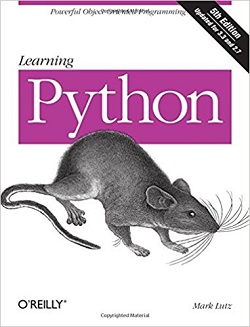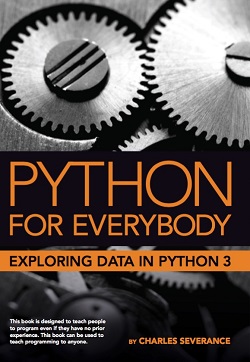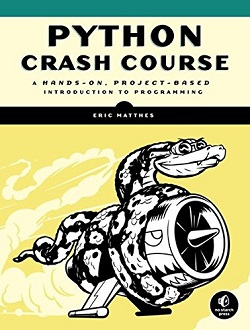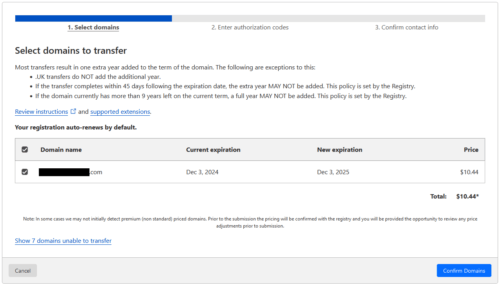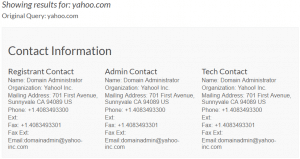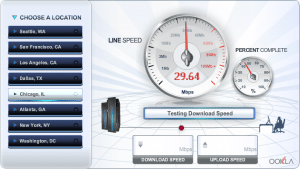Python is a powerful high-level programming language for general-purpose programming created by Guido van Rossum.
It has simple easy-to-use syntax, making it the perfect language for someone trying to learn computer programming for the first time. Here are 3 of the best Python programming books available for beginners.
Learning Python
Get a comprehensive, in-depth introduction to the core Python language with this hands-on book. Based on author Mark Lutz’s popular training course, this updated fifth edition will help you quickly write efficient, high-quality code with Python. It’s an ideal way to begin, whether you’re new to programming or a professional developer versed in other languages.
Complete with quizzes, exercises, and helpful illustrations, this easy-to-follow, self-paced tutorial gets you started with both Python 2.7 and 3.3— the latest releases in the 3.X and 2.X lines—plus all other releases in common use today. You’ll also learn some advanced language features that recently have become more common in Python code.
- Explore Python’s major built-in object types such as numbers, lists, and dictionaries
- Create and process objects with Python statements, and learn Python’s general syntax model
- Use functions to avoid code redundancy and package code for reuse
- Organize statements, functions, and other tools into larger components with modules
- Dive into classes: Python’s object-oriented programming tool for structuring code
- Write large programs with Python’s exception-handling model and development tools
- Learn advanced Python tools, including decorators, descriptors, metaclasses, and Unicode processing
Python for Everybody
Written by Dr. Charles Severance, Python for Everybody is designed to introduce students to programming and software development through the lens of exploring data. You can think of the Python programming language as your tool to solve data problems that are beyond the capability of a spreadsheet. Python is an easy to use and easy to learn programming language that is freely available on Macintosh, Windows, or Linux computers. So once you learn Python you can use it for the rest of your career without needing to purchase any software. This book uses the Python 3 language. The earlier Python 2 version of this book is titled “Python for Informatics: Exploring Information“. The course materials are available to you under a Creative Commons License so you can adapt them to teach your own Python course.
Python Crash Course
Written by Eric Matthes, Python Crash Course is a fast-paced, thorough introduction to programming with Python that will have you writing programs, solving problems, and making things that work in no time.
In the first half of the book, you’ll learn about basic programming concepts, such as lists, dictionaries, classes, and loops, and practice writing clean and readable code with exercises for each topic. You’ll also learn how to make your programs interactive and how to test your code safely before adding it to a project. In the second half of the book, you’ll put your new knowledge into practice with three substantial projects: a Space Invaders-inspired arcade game, data visualizations with Python’s super-handy libraries, and a simple web app you can deploy online.
As you work through Python Crash Course, you’ll learn how to:
- Use powerful Python libraries and tools, including matplotlib, NumPy, and Pygal
- Make 2D games that respond to keypresses and mouse clicks, and that grow more difficult as the game progresses
- Work with data to generate interactive visualizations
- Create and customize simple web apps and deploy them safely online
- Deal with mistakes and errors so you can solve your own programming problems
If you’ve been thinking seriously about digging into programming, Python Crash Course will get you up to speed and have you writing real programs fast. Why wait any longer? Start your engines and code!
Have an interest in Python? Do you own any of these books – or do you own any other Python books? Let me know what other Python books you think deserve to be on this list.
